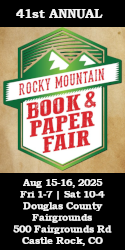Reflections on the 2020 Election (Part 2)
The post-war exportation of jobs began in the 1950s in places like Gloversville and Johnstown (Fulton County, NY) when glove factories discovered it was much cheaper to ship unfinished leather goods out of the country for completion. The perfect storm of post-war strikes for higher wages accompanied by a shrinking market for leather gloves accelerated the change as manufacturers and their suppliers struggled, and often failed, to survive. The surge in unemployment and economic decline that began in Fulton County was already well-established long before the term “rust belt” had even been thought of. And to give readers an idea of the importance of this “canary in a coal mine” case, consider that while growing up in Gloversville some people we knew looked with condescension on their “poor cousins” who lived in the small city of Saratoga Springs a few miles to the east.
Years later as industries throughout the country began closing in response to cheaper goods being imported from Japan, Taiwan, the Philippines and elsewhere, factory workers were losing their livelihoods at an accelerated but manageable rate. It really wasn't until the 1990s that the flood of imported products from China, often under international trade terms lacking in reciprocity, that the accelerated industrial decline turned into a rout. Far from being an old Russian-style, Marxist economy based on state ownership of the means of production (with all of its inefficiencies and uniformly low standard of living), China has more in common with the 1930s German national socialist partnership with private businesses operating under close governmental scrutiny and control.
A few of the companies that prospered (often using enforced or slave labor) under German national socialism included Hugo Boss (made snappy uniforms for the Brown Shirts, the SS and other government agencies), Volkswagen, BMW, Siemens, I.G. Farben (manufacturers of Zyklon-B), and others. Also, American companies operating in Germany that worked in close cooperation with the Third Reich included the AP (a source of state-approved “fake news” for international consumption and Thomas Watson's IBM (supplied advanced data processing systems for keeping track of the population for purposes of group identification – the punch card code for Jew was 8, for Gypsy 11, etc.). Group identity politics and the promotion of divisiveness were both very important in Germany at that time.
Other similarities abound. The CCP and the National Socialist German Workers' Party (Nazi), achieved high levels of economic efficiency due in no small part to partnerships between wealthy and highly favored industrialists, bankers, and the state. In this sort of calculation, the people, especially the majority working class, were and are still considered as potentially troublesome and as such to be manipulated by any means necessary.
To achieve this purpose tight control of information is absolutely essential. In Germany, during the '30s and '40s, the Reich Ministry of Public Enlightenment (Reichsministerium für Volksaufklärung und Propaganda) run by Joseph Goebbels controlled information flow and served as “fact checker”. In China, the Xinhua News Agency pretty much decides what's news and what isn't – unauthorized whistle-blowing is harshly dealt with and independent reporters have been known to disappear. In the United States of late, public information has increasingly become the self-assigned purview of a few metropolitan dailies, legacy network television news, well-financed social media and a certain well-entrenched political party.
And if public re-education doesn't achieve its purpose of discrediting or suppressing populist discontent and other dissident voices, there are always more drastic measures – Nazi Germany scape-goated Jews, Gypsies and others; the CCP to a lesser extent the Uighurs of western China. Increasingly, the American establishment's favorite scapegoat seems to be unemployed factory workers trying to make a living in the rust belt, tax-payers, white men, or anyone who identifies as a populist or who questions the integrity of the entrenched bureaucracy. This was the unsustainable situation, long unaddressed by professional politicians, that needed serious attention in 2016. (to be continued)


























